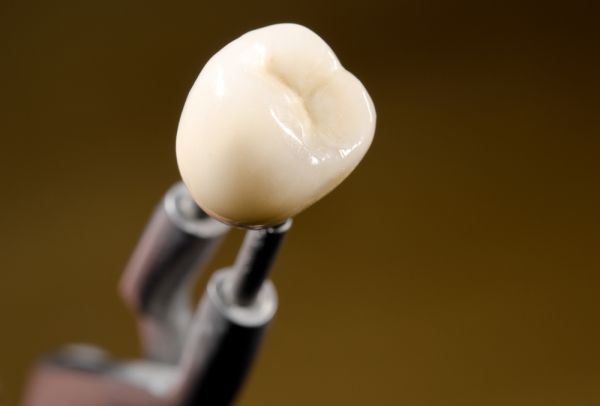 Dental crowns, bridgework and other dental procedures help dentist stay true to their goal of preserving as much of the natural teeth as possible. With so many dental options, how does one know if removable dentures, dental implants or crowns and bridgework are the best method of treatment?
Dental crowns, bridgework and other dental procedures help dentist stay true to their goal of preserving as much of the natural teeth as possible. With so many dental options, how does one know if removable dentures, dental implants or crowns and bridgework are the best method of treatment?
Decay & Trauma
Teeth that experience decay or trauma lose some of their healthy structure and become weaker over time. When the tooth becomes too weak to support a filling, the dentist and patient must make decisions on how to keep the tooth strong and healthy.
Dental Crowns
Crowns are a common choice. A crown caps the tooth above the gum line, keeping the healthy part of the tooth intact and protecting it by covering it. Crowns are made from tooth-colored materials and are shaped to look and function like a perfectly healthy tooth.
Dental crowns are typically chosen when:
- The tooth has had multiple fillings and cannot support another one
- A fall or sports-related injury has caused damage to the tooth
- Grinding, clenching or other bad habits have worn down the tooth
- Deformed or discolored tooth needs to be corrected
- A tooth is damaged or decayed to the point of needing root canal therapy
Bridgework
When a tooth is damaged beyond correction with a dental crown, the dentist may suggest removing the tooth. Teeth are often lost due to decay, fractures, disease or abscesses. It is always important to replace missing teeth to prevent neighboring teeth from shifting, to preserve the facial structure and to maintain a strong bite for chewing.
Bridgework vs. dental implants
There are two main options to replace missing teeth: Dental implants or bridgework. Dental implants are costly and require months of procedures and waiting for healing. Bridgework requires the crowning of two teeth on either side of the missing tooth to hold the bridgework in place. It is similar to getting a dental crown. The main difference is that all the crowns are joined together.
Dental implants are not always an option. Finances, a lack of bone quantity or density, the presence of nerves or sinuses, a compromised immune system, diabetes or other diseases may prevent a patient from being a candidate for implants.
The main downside to bridgework versus dental implants is the need to file down and weaken healthy teeth adjacent to the missing teeth in order to properly secure the dental crowns that will hold the bridgework in place.
It is vital to take care of the bridgework. The seal between the natural teeth and dental crowns/bridgework is more acceptable to decay than natural teeth or dental implants. It needs proper maintenance and routine visits to the dentist for cleanings.
The Bottom Line
There are many options for patients to replace missing teeth. It is important to seek out the advice of a dentist to determine what options are best for you. Every case is unique, and a consultation will help you determine how to get the smile you’ve always dreamed of.
Request an appointment or call Integrated Dental Care at (610) 600-9745 for an appointment in our Exton office.

